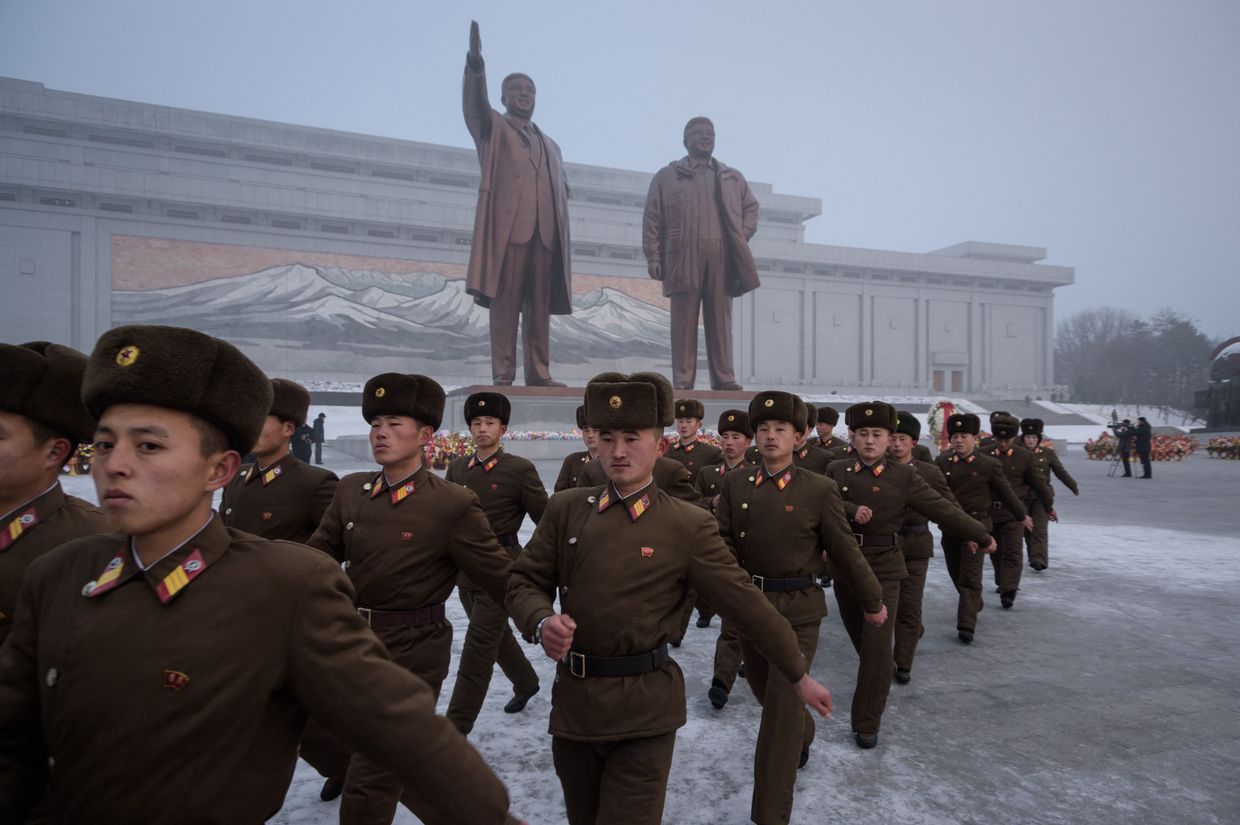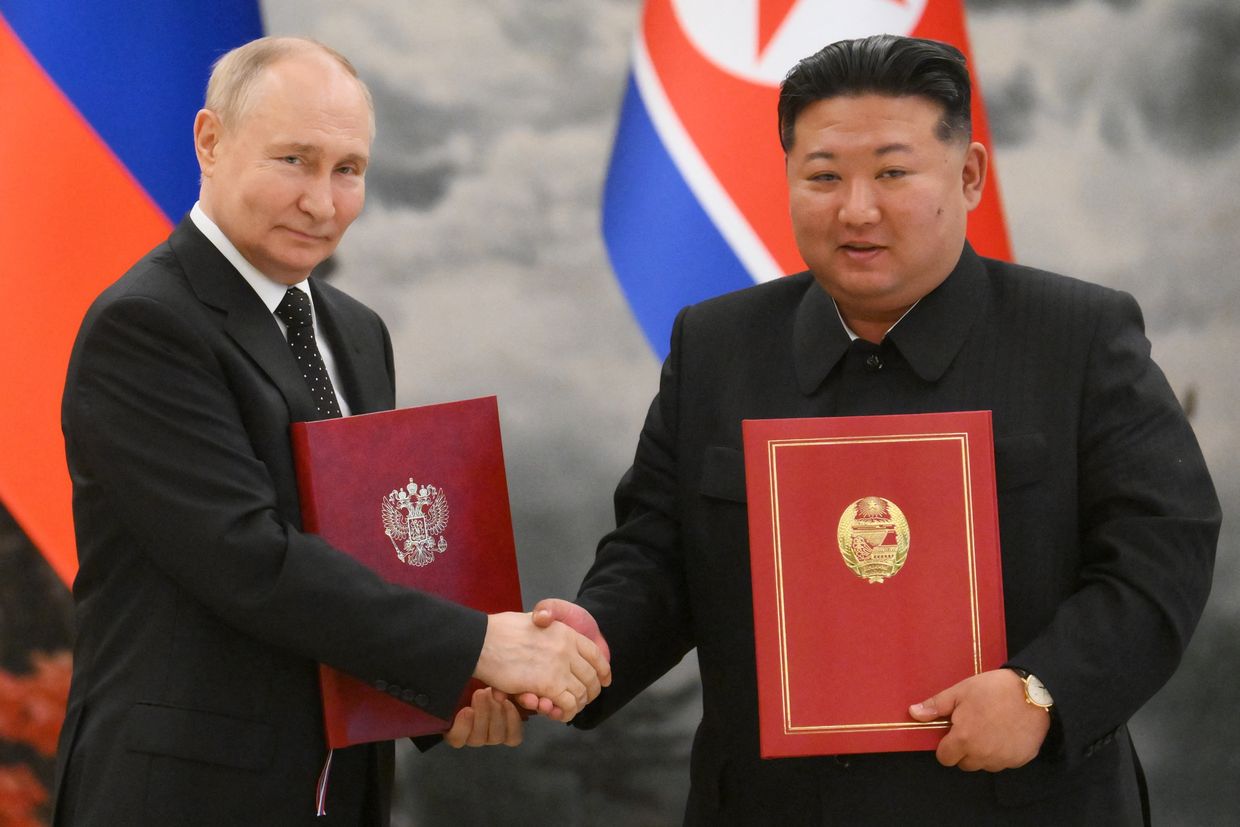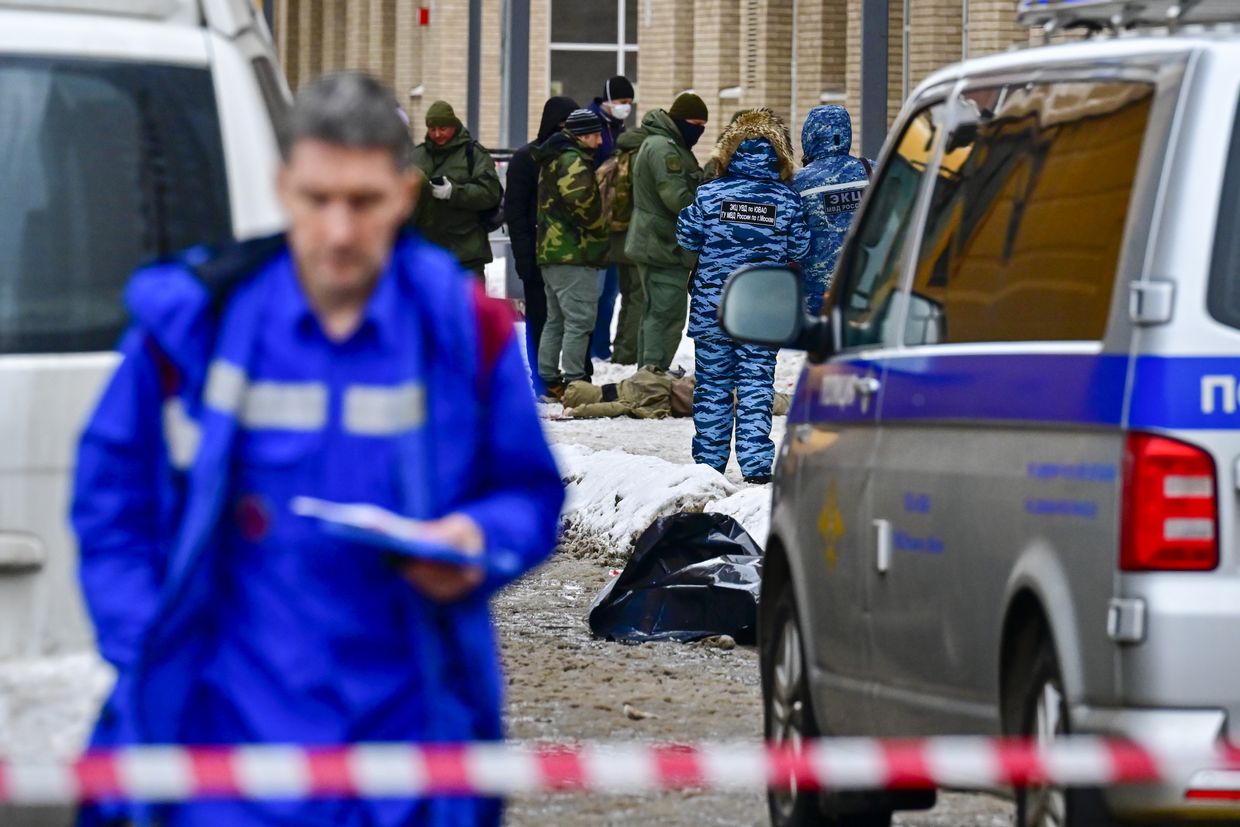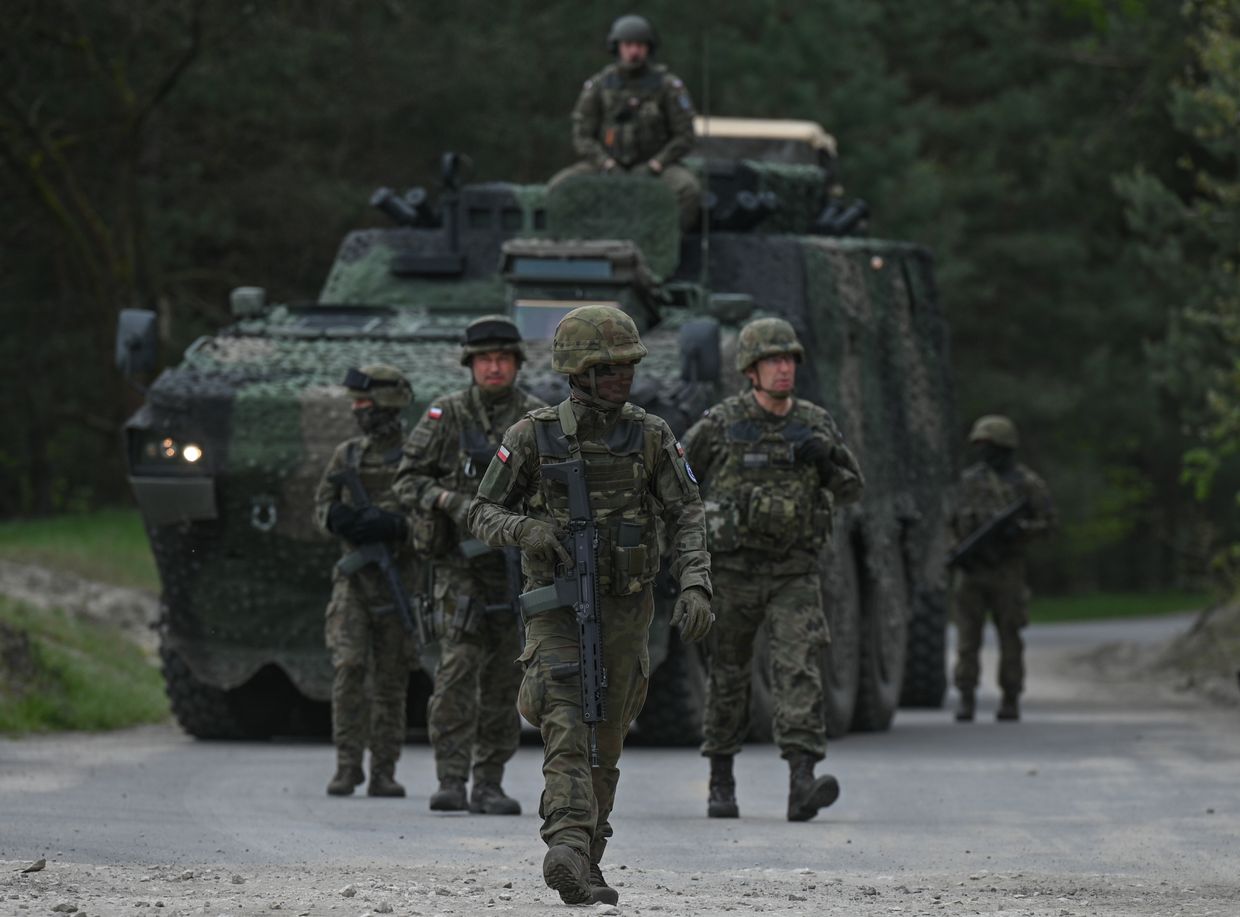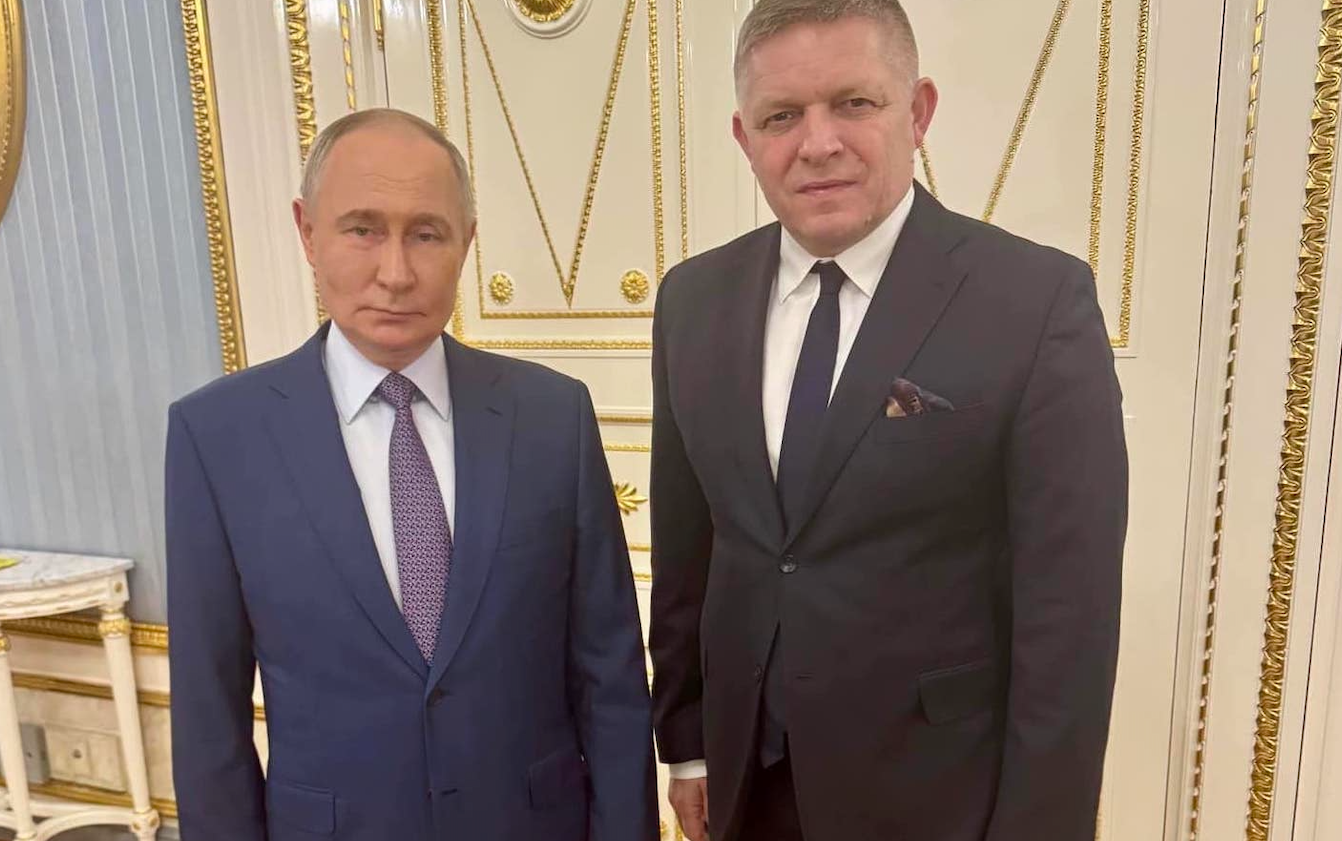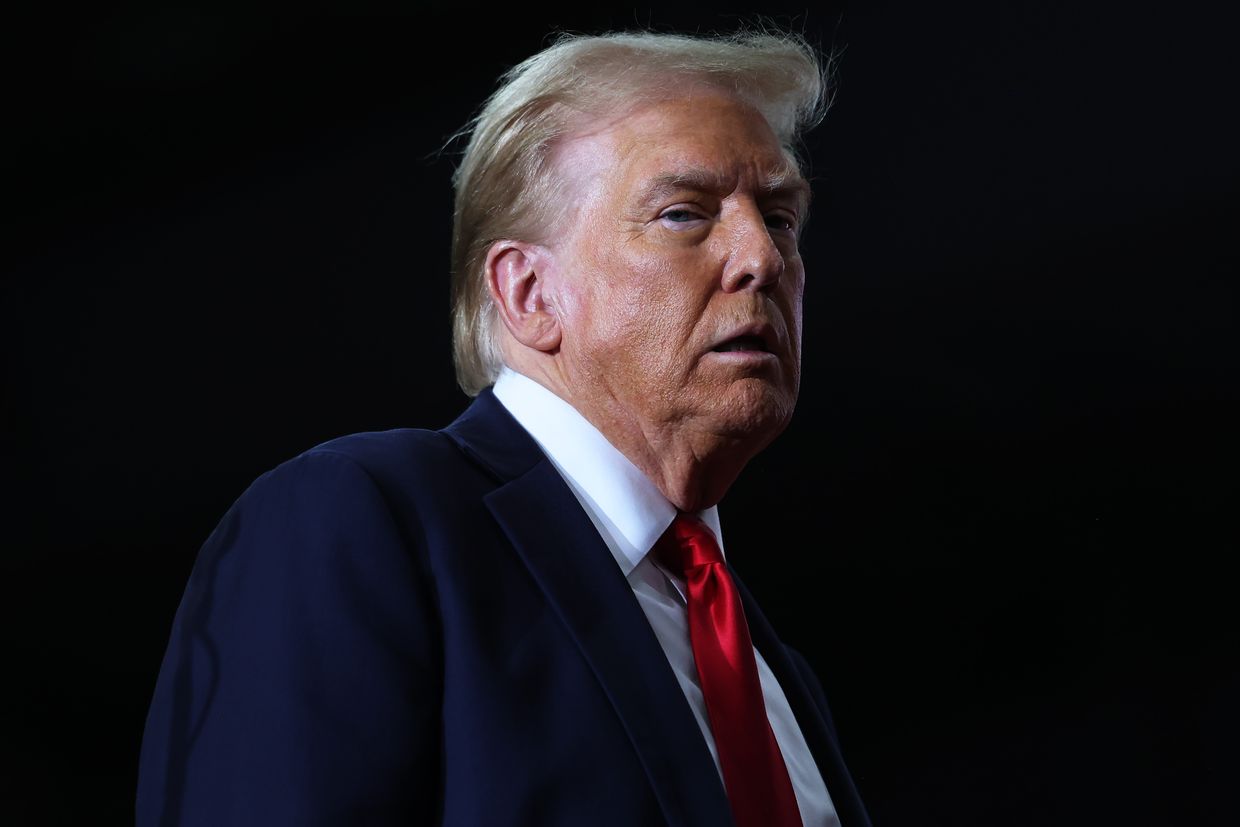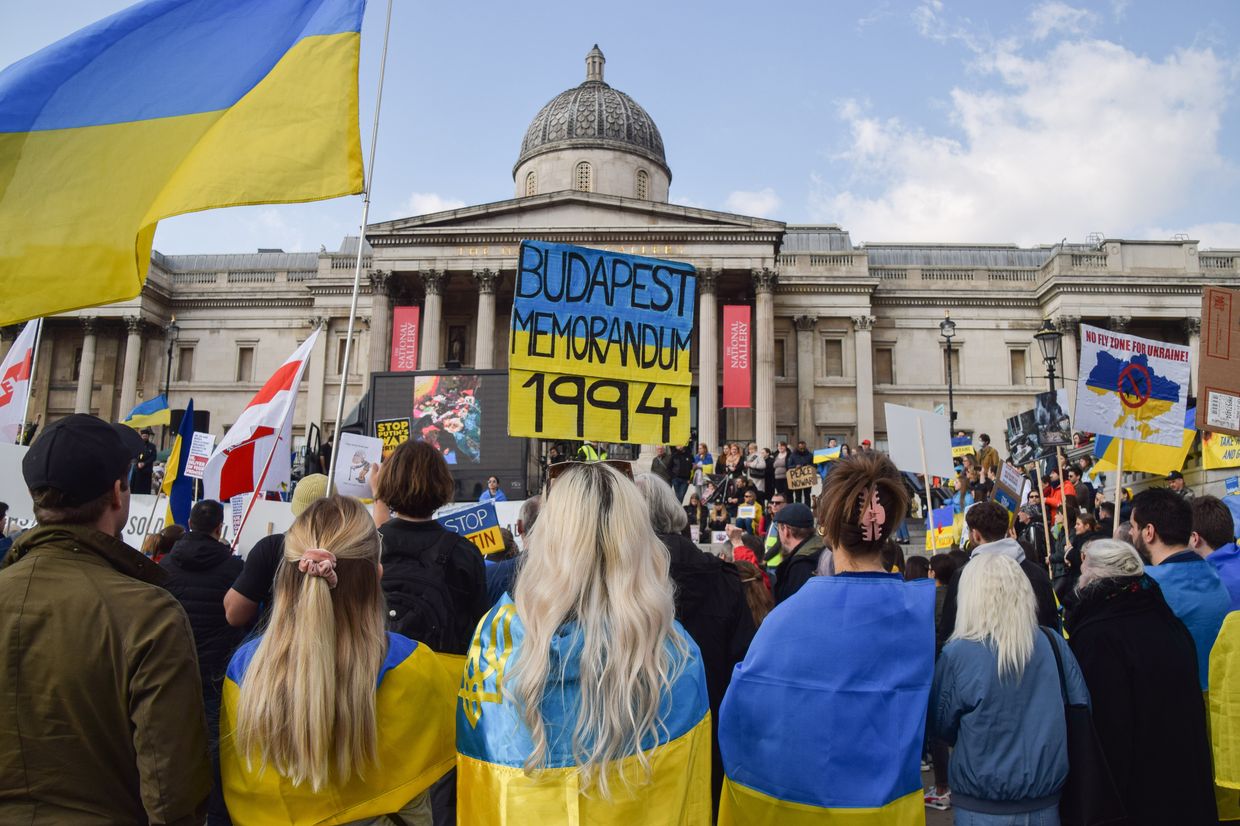Ukraine war latest: Over 3,000 North Korean troops killed, wounded in Kursk Oblast, Zelensky says

Key developments on Dec. 23:
- Over 3,000 North Korean troops killed, wounded in Kursk Oblast, Zelensky says
- Satellite imagery suggests North Korea to supply more arms to Russia, WSJ reports
- 'Mysterious' fire engulfs Russian Shahed warehouse, Ukrainian intelligence claims
- First Ukrainian Legion unit trained in Poland deployed to Ukraine, ambassador says
- 'What is being paid to him, and what does he pay with?' — Zelensky blasts Fico after Moscow visit
- NATO chief defends Scholz, calls Zelensky's criticism 'unfair'
- 47% of Ukrainians back NATO accession even while territories stay occupied, survey shows
The number of killed and injured North Korean soldiers fighting alongside Russian forces in Russia's Kursk Oblast has surpassed 3,000, President Volodymyr Zelensky said in a statement shared on Telegram on Dec. 23.
Russia has reportedly deployed about 12,000 North Korean troops to help oust Ukrainian troops fighting in Kursk Oblast since early August.
Zelensky warned of the global risks posed by deepening military cooperation between Moscow and Pyongyang, including the transfer of modern warfare experience and advanced military technology.
“There are risks of North Korea sending additional soldiers and military equipment to the Russian army, and we will have tangible responses to this,” Zelensky said.
He added that increased collaboration between Russia and North Korea threatens to destabilize the Korean Peninsula and nearby regions.
Zelensky's estimation, that he said comes from Ukraine's intelligence, is a significant increase from other recent reports about the North Korean casualties.
South Korean MP Lee Sung-kwon told reporters on Dec. 19 that at least 100 North Korean troops have been killed and 1,000 injured, with casualties linked to their lack of experience with terrain and modern drone warfare.
Reports of North Korean troops fighting in Kursk Oblast emerged earlier in November, but Russia reportedly started using them in ground assaults in December.
Satellite imagery suggests North Korea to supply more arms to Russia, WSJ reports
North Korea appears to be preparing to supply more arms to Russia on top of some 20,000 containers it had already sent, the Wall Street Journal (WSJ) reported on Dec. 23 based on its analysis of satellite images.
It follows a statement by the South Korean military, which said earlier the same day that North Korea prepares to send more troops and weapons to aid Russia’s war against Ukraine.
Seoul officials told WSJ that approximately 200 munitions factories in North Korea are running at full capacity to produce weapons, with Russia providing fuel and equipment to assist Pyongyang's arms production efforts.
Satellite images analyzed by WSJ show that some of these factories are being expanded. In return for its arms and ammunition sent to Russia, North Korea might have received as much as $5.5 billion, an analyst told WSJ.
By deepening military cooperation with Moscow, Pyongyang hopes to gain practical battlefield experience and the ability to modernize its weapons systems, said.
North Korea has emerged as Russia's leading ally in the full-scale war against Ukraine, providing not only ballistic missiles and artillery ammunition but also soldiers. The two nations signed a defense treaty in June, requiring either state to render military aid to the other in the event of an attack.
After reporting the first clashes with North Korean troops in the fall, Ukraine in December announced that Russia had begun using North Korean units in ground assaults in Russia’s Kursk Oblast.
South Korean officials have reported that at least 100 North Korean soldiers have been killed while fighting for Russia against Ukraine. According to lawmaker Lee Sung-kwon, North Korean troops are suffering high casualty rates in part due to their inexperience with drone warfare.
President Volodymyr Zelensky said that Russia is attempting to hide information about North Korean casualties.
'Mysterious' fire engulfs Russian Shahed warehouse, Ukrainian intelligence claims
A "devastating" fire broke out at a Shahed drone warehouse at the Alabuga Special Economic Zone in Russia's Tatarstan, destroying drone parts worth $16 million, Ukraine's military intelligence (HUR) said on Dec. 23.
The Alabuga Special Economic Zone hosts the Yelabuga drone factory that produces Shahed-type drones for the Russian military, located more than 1,300 kilometers (800 miles) from the Russia-Ukraine border.
According to HUR, the affected warehouse stored 65 drone attack fuselages, as well as engines, navigation systems, and thermal imaging cameras for the production of 400 Shahed-type drones.
"Everything burned down," the agency said without explicitly claiming responsibility for the "mysterious, devastating fire." Ukrainian intelligence agencies have been previously linked to a number of assassinations and sabotage operations deep in the Russian rear during the full-scale war.
The Kyiv Independent could not verify the claims.
"HUR reminds that there will be fair retribution for every war crime committed against the Ukrainian people," the intelligence agency said in a statement.
Local authorities did not report any fire or similar incident in the Alabuga zone overnight on Dec. 23. Drones struck Kazan, Tatarstan's regional center, on the morning of Dec. 21, damaging several buildings but reportedly inflicting no casualties.
The Yelabuga drone factory was launched in July 2023, aiming to produce not only Russian equivalents of Iranian-made Shahed drones but also the Albatross reconnaissance drones. Russia regularly employs Shaheds and its domestic-made variants like Geran for strikes against Ukrainian cities and infrastructure.
Ukrainian long-range drones previously struck the Yelabuga facility in early April.
First Ukrainian Legion unit trained in Poland deployed to Ukraine, ambassador says
The first unit of the Ukrainian Legion, a volunteer brigade being formed and trained in Poland, has departed for Ukraine, Ukraine's Ambassador to Poland Vasyl Bodnar said in an interview with Radio Free Europe/Radio Liberty on Dec. 23.
Bodnar didn't clarify how many troops were sent.
The initiative aims to bolster Ukraine’s Armed Forces by recruiting Ukrainian men living in Poland and other EU countries.
The training of the first legionnaires will continue at Ukrainian military grounds, according to Bodnar. The next group of volunteers is scheduled to sign contracts with Ukraine's Armed Forces on Jan. 10 and begin training in Poland.
The ambassador described the project as a "success story" despite challenges and criticism from Russian propaganda.
“Our citizens who join it will have the satisfaction of good training,” he said, emphasizing the unit’s voluntary nature.
Since its unveiling in July, the Ukrainian Legion has attracted over 1,000 applicants. The first recruitment center opened in October at the Ukrainian consulate in Lublin, Poland.
The unit is trained by the Polish Armed Forces as part of a joint effort between Kyiv and Warsaw to address Ukraine's manpower shortages.
Ukraine recently reformed its domestic mobilization policies and is in talks with foreign partners to facilitate the return of thousands of draft-eligible citizens who fled abroad.
The formation of the Ukrainian Legion reflects Kyiv's broader efforts to replenish its military ranks as the war is in its third year.
'What is being paid to him, and what does he pay with?' — Zelensky blasts Fico after Moscow visit
President Volodymyr Zelensky on Dec. 23 accused Slovak Prime Minister Robert Fico of undermining Europe's efforts to become independent of Russian gas and helping Moscow to fund its war against Ukraine.
Fico met Russian President Vladimir Putin in Moscow on Dec. 22 to discuss gas supplies after Kyiv said it would not extend the deal on transiting Russian gas to Europe past Dec. 31.
Following the visit, Zelensky lambasted Slovakia's prime minister in a long post on social media. He called Fico's pro-Russian energy policy a "big security issue" for Slovakia and Europe, asking: "Why is this leader so dependent on Moscow? What is being paid to him, and what does he pay with?"
"It is worth noting that after their meeting in Moscow, Fico and Putin did not issue joint statements or respond to media questions," Zelensky said on X.
"They simply cannot say publicly anything about what they discussed in the meeting. They are afraid of the public's reaction."
Under Fico's leadership, Slovakia took a sharp foreign policy turn, halting military supplies to Ukraine from the Slovak Armed Forces' stocks and adopting more Russian-friendly rhetoric.
The prime minister has repeatedly made controversial statements on Ukraine and the war that echo the Kremlin's talking points, gave an interview with Russian propagandist Olga Skabeyeva, and called for the normalization of relations with Russia.
The Ukrainian president said that though Moscow provides significant energy discounts to Fico, such discounts are paid "through sovereignty or murky schemes." Zelensky referred to a recent European meeting in Brussels at which Fico allegedly did not want to participate in a joint effort to find a replacement for Russian gas.
According to Ukraine's head of state, Fico instead wanted to "assist Russia in pushing American gas and energy resources of other partners away from Europe, implying that he wants to help Putin earn money to fund the war and weaken Europe."
"We are losing people as a result of the war that Putin started, and we believe that such assistance to Putin is immoral," Zelensky concluded.
Fico is yet to comment on Zelensky's statement.
Zelensky also said that Fico refused compensation for the lost profit during the transition period and is "interested specifically in the Russian gas" worth $500 million per year, as well as profits from oil pipe that runs through Ukraine and "gives another $500 million per year."
Fico previously told the media that Zelensky offered him 500 million euros ($520 million) from frozen Russian assets if Bratislava supports Ukraine's NATO membership, an offer the Slovak prime minister said he rejected.
NATO chief defends Scholz, calls Zelensky's criticism 'unfair'
NATO Secretary General Mark Rutte told President Volodymyr Zelensky that his sometimes "harsh criticism" of German Chancellor Olaf Scholz is unfair, Rutte told the German news agency DPA in comments published on Dec. 23.
In the interview, Rutte said that Scholz's contributions to Ukraine are commendable. The chancellor ensured that Germany ranks second after the U.S. in military support for Ukraine, something Kyiv should also be grateful for, Rutte noted.
The NATO chief nevertheless voiced support for supplying Germany's Taurus long-range missiles to Ukraine without any restrictions on their use, a bone of contention between Kyiv and Berlin.
Calls for Germany to supply Ukraine with Taurus missiles were renewed once the U.S. authorized Ukraine to use its ATACMS long-range missiles against targets in Russia in November.
Scholz, who is adamant about not providing Taurus to Ukraine, also recently made headlines by calling Russian President Vladimir Putin for the first time after over two years, leading to criticism from Kyiv.
"In Europe, it may happen that after one call, there may be a second, third, fourth, fifth... Because sometimes leaders want to (wrestle for) leadership. After that, there may be a wave of actual recognition of Putin," Zelensky said at the time.
"I believe that this does not strengthen Ukraine."
Germany, Ukraine's main European backer, is currently facing internal turmoil after Scholz lost a confidence vote in the Bundestag on Dec. 16. This paved the way for early parliamentary elections scheduled for Feb. 23.
Scholz’s opponent, center-right CDU/CSU chancellor candidate Friedrich Merz, has expressed openness to the delivery of Taurus missiles.
Trump pushing higher defense spending
In the interview, Rutte also said he expects U.S. President-elect Donald Trump to pressure its allies and NATO countries to increase their defense spending.
NATO allies reportedly plan to agree on an increase in their defense spending target from 2% to 3% of their gross domestic product (GDP) before their leaders convene for a summit in June 2025.
Taking office in January 2025, Trump had hinted at plans to reduce aid for Ukraine and incentivize European countries to pay more for their protection.
The Financial Times recently reported that while the incoming U.S. president told European partners he would not abandon Ukraine, he also called for raising the defense spending benchmark to 5% of GDP.
Some European NATO countries have yet to reach 2%, while Poland, the biggest spender, is expected to invest 4.7% of its GDP in defense in 2025.
47% of Ukrainians back NATO accession even while territories stay occupied, survey shows
Nearly half of Ukrainians, 47%, support Ukraine joining NATO even if some of its territories remain under Russian occupation at the time of accession, according to a survey by the Ilko Kucheriv Democratic Initiatives Foundation and the Razumkov Center, published on Dec. 22.
In case of such an accession, the alliance’s umbrella of protection may be extended to occupied territories only after liberation.
This represents a 14-percentage-point increase from a similar poll in June 2023.
The poll comes as U.S. President-elect Donald Trump’s hesitance to sustain long-term support for Ukraine adds urgency to defining Ukraine's post-war security architecture.
The poll was conducted face-to-face among 1,518 respondents in Ukraine-controlled areas.
It also found that 36% opposed NATO accession under such conditions, down 16 percentage points since June 2023.
The strongest opposition to the idea of such limited accession to NATO came from respondents over 50, those from eastern, central, and southern oblasts, and individuals living below the poverty line or without ties to occupied territories.
The findings come as Ukraine faces limited battlefield success and growing discussions on security arrangements.
While 55% of respondents view NATO membership as Ukraine's best security option, 60% believe it is the only way to prevent future Russian aggression.
Other options, such as neutrality with international guarantees, garnered only 12% support, while non-alignment was favored by just 3%.
President Volodymyr Zelensky said on Dec. 1 that NATO’s Article 5 might not immediately apply to active conflict zones, signaling a shift in Kyiv’s stance.
Zelensky also recently acknowledged that liberating some occupied territories, such as Crimea, might require diplomatic solutions, not military ones.
This pragmatic approach aligns with NATO pathways resembling West Germany's phased accession during the Cold War, an idea supported by 70.3% of Ukrainians in a Dec. 10 survey by the New Europe Center.



